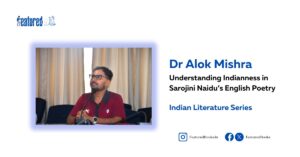Russian literature occupies a unique space in the world of letters, distinguished by its profound psychological depth, existential questioning, and unflinching engagement with the human condition. Unlike the polished elegance of French literature, the restrained realism of British novels, or the experimental exuberance of Latin American magical realism, Russian literature thrives on intensity, moral urgency, and a relentless exploration of suffering, redemption, and the soul. From the psychological torment of Dostoevsky’s characters to the sweeping historical narratives of Tolstoy, Russian writers have crafted works that are not just stories but philosophical inquiries, spiritual confessions, and social critiques. What makes Russian literature so different from its counterparts? The answer lies in its historical context, its philosophical preoccupations, and its unparalleled ability to merge the personal with the universal.
One of the defining features of Russian literature is its deep engagement with existential and spiritual dilemmas. While Western literature often focuses on individualism, social mobility, or romantic idealism, Russian writers delve into the darker, more complex aspects of existence. Fyodor Dostoevsky’s Crime and Punishment is a prime example. Unlike, say, Victor Hugo’s Les Misérables, which also explores crime and redemption, Dostoevsky’s novel is less concerned with social justice than with the psychological and moral disintegration of its protagonist, Raskolnikov. Where Jean Valjean’s suffering leads to an apparent moral triumph, Raskolnikov’s journey is one of torment, doubt, and uneasy salvation. This preoccupation with inner turmoil is quintessentially Russian. Similarly, Tolstoy’s Anna Karenina does not merely tell a tragic love story; it dissects the moral and spiritual consequences of passion, societal hypocrisy, and personal despair in a way that feels almost biblical in its gravity. Compare this to Gustave Flaubert’s Madame Bovary, another tale of adultery and disillusionment. While Flaubert’s novel is a masterpiece of irony and detachment, Tolstoy’s is immersive, emotionally devastating, and deeply philosophical.
Want more? Read this: Russian Authors You Must Read
Another distinguishing trait of Russian literature is its historical and political consciousness. Russian writers have often lived through periods of immense upheaval—tsarist oppression, revolutionary fervour, Soviet repression—and their works reflect this turbulence. Aleksandr Solzhenitsyn’s The Gulag Archipelago is not just a memoir or a historical account; it is a searing indictment of totalitarianism, written with a moral fury that has few equivalents in world literature. George Orwell’s *1984* is a brilliant dystopian novel, but it is allegorical and detached, whereas Solzhenitsyn’s work is raw, personal, and suffused with the weight of lived experience. Even in less overtly political works, such as Mikhail Bulgakov’s The Master and Margarita, the shadow of authoritarianism looms large. Bulgakov’s novel, with its blend of satire, fantasy, and metaphysical inquiry, could only have been written under Stalinism, where absurdity and terror coexisted. By contrast, Franz Kafka’s The Trial explores bureaucratic nightmare in a more abstract, surreal manner, while Bulgakov’s work remains anchored in the grim realities of Soviet life.
Russian literature also excels in its portrayal of collective suffering and communal identity. While British novels, such as Charles Dickens’ Bleak House or Oliver Twist, critique social injustice through individual struggles, Russian literature often presents suffering as a shared, almost metaphysical condition. In War and Peace, Tolstoy does not just narrate the lives of aristocrats and soldiers; he immerses the reader in the vast, chaotic sweep of history itself. The novel’s philosophical digressions on free will versus determinism elevate it beyond a mere family saga or war epic. Compare this to Leo Tolstoy’s contemporary, Honoré de Balzac, whose La Comédie Humaine meticulously documents French society. Balzac’s realism is encyclopedic, but Tolstoy’s is transcendent, merging the personal with the cosmic. Similarly, Anton Chekhov’s short stories and plays capture the quiet despair and unfulfilled dreams of ordinary people in a way that feels uniquely Russian. Where Guy de Maupassant’s stories are sharp, ironic, and often cynical, Chekhov’s are suffused with melancholy and a deep empathy for human frailty.
The Russian literary tradition is also marked by its moral and philosophical ambition. Few literary works wrestle so openly with questions of God, evil, and the meaning of life. Dostoevsky’s The Brothers Karamazov is not just a novel but a theological and philosophical debate, with Ivan’s rebellion against God in “The Grand Inquisitor” chapter standing as one of the most profound meditations on faith and suffering ever written. In Western literature, Herman Melville’s Moby-Dick approaches similar existential depths, but where Melville’s prose is baroque and symbolic, Dostoevsky’s is feverish, immediate, and psychologically penetrating. Even in more secular works, such as Turgenev’s Fathers and Sons, the clash between generations is not just a social conflict but a philosophical one, pitting nihilism against tradition in a way that foreshadows the ideological battles of the 20th century.
Ultimately, Russian literature’s narrative style distinguishes it. There is a rawness, an emotional intensity, and a willingness to embrace digression and ambiguity that feels distinct. Gogol’s Dead Souls is a picaresque satire, but it is also a surreal, almost dreamlike journey through the Russian soul. Compare this to Jonathan Swift’s Gulliver’s Travels, which is equally satirical but more calculated in its absurdity. Gogol’s humour is darker, more grotesque, and tinged with a sense of existential absurdity that feels peculiarly Russian. Similarly, the modernist experiments of Andrei Bely’s Petersburg, or the fragmented narratives of contemporary writers like Svetlana Alexievich, demonstrate a willingness to disrupt conventional storytelling in ways that feel both innovative and deeply rooted in Russian literary traditions.
In the end, what makes Russian literature stand out is its refusal to offer easy answers. Where many Western novels, mainly in English literature, resolve their conflicts through marriage, moral clarity, or narrative closure, Russian literature often lingers in doubt, despair, and unresolved tension. It is a literature that stares unflinchingly into the abyss and finds there not just darkness but a strange, haunting beauty. Whether through the psychological torment of Dostoevsky, the epic grandeur of Tolstoy, or the satirical brilliance of Bulgakov, Russian literature remains unmatched in its ability to confront the most profound questions of existence. It is not just a national tradition but a universal one, speaking to readers across time and culture with a power that few other literatures can match.
Adarsh for Featured Books




